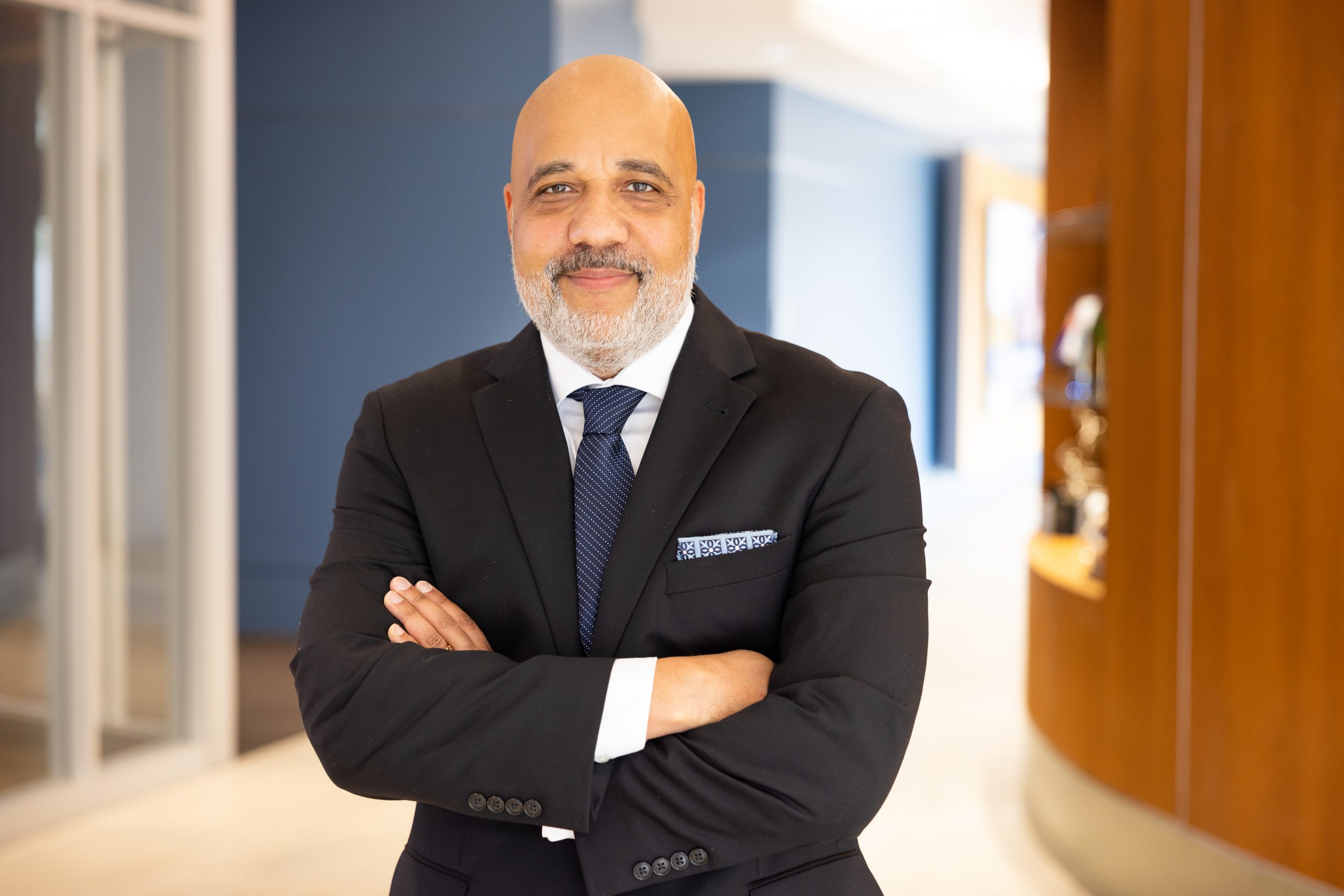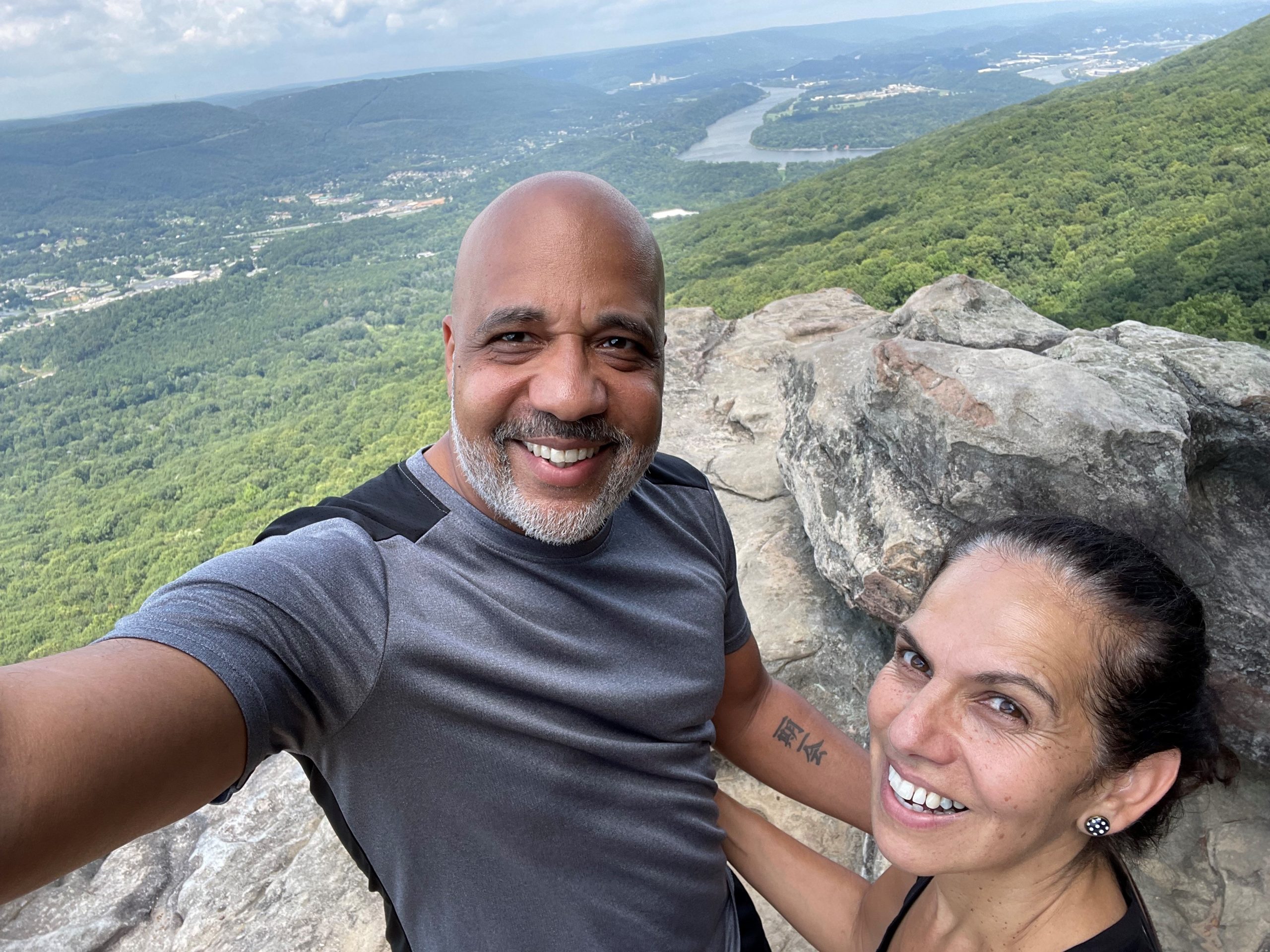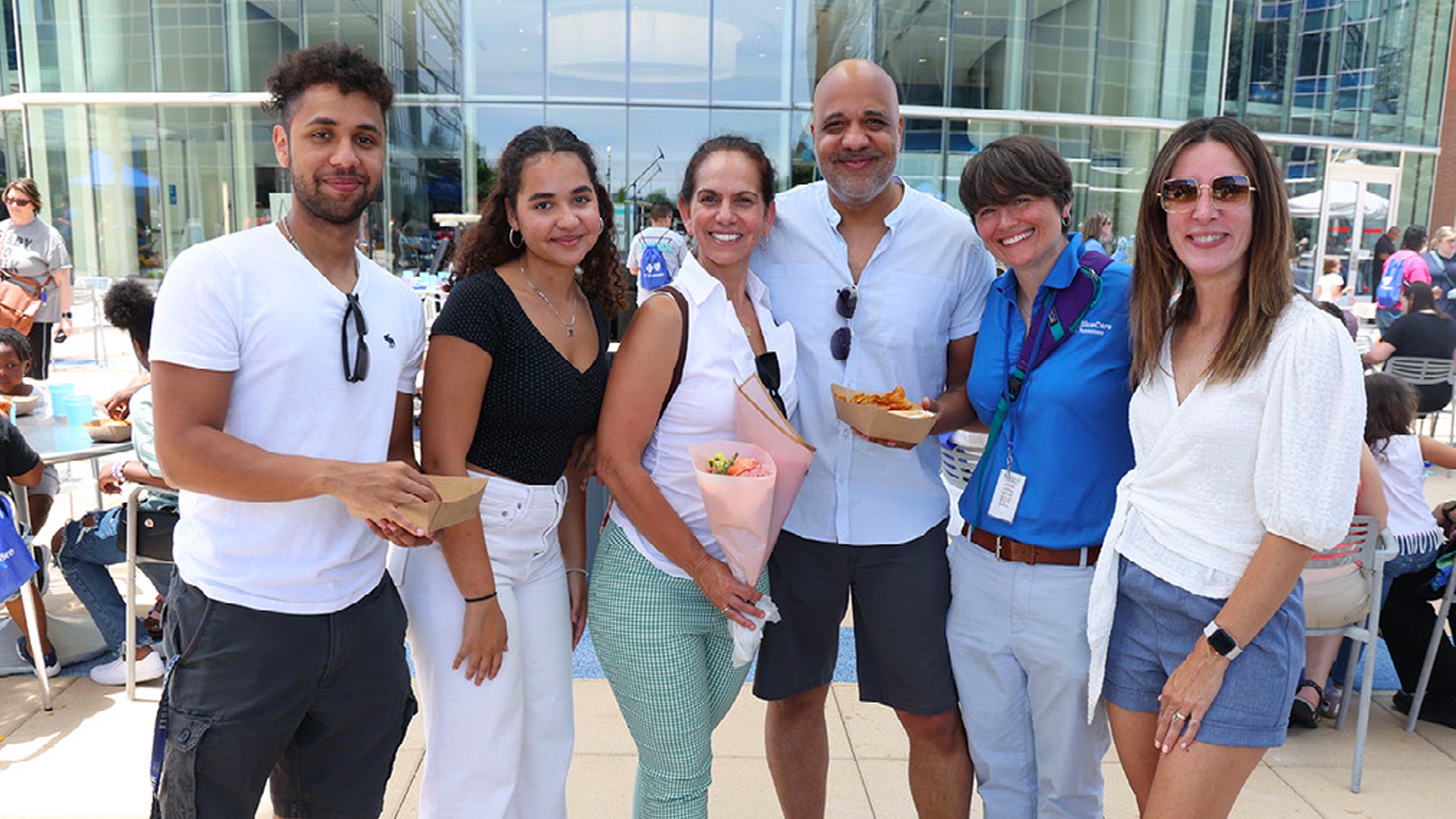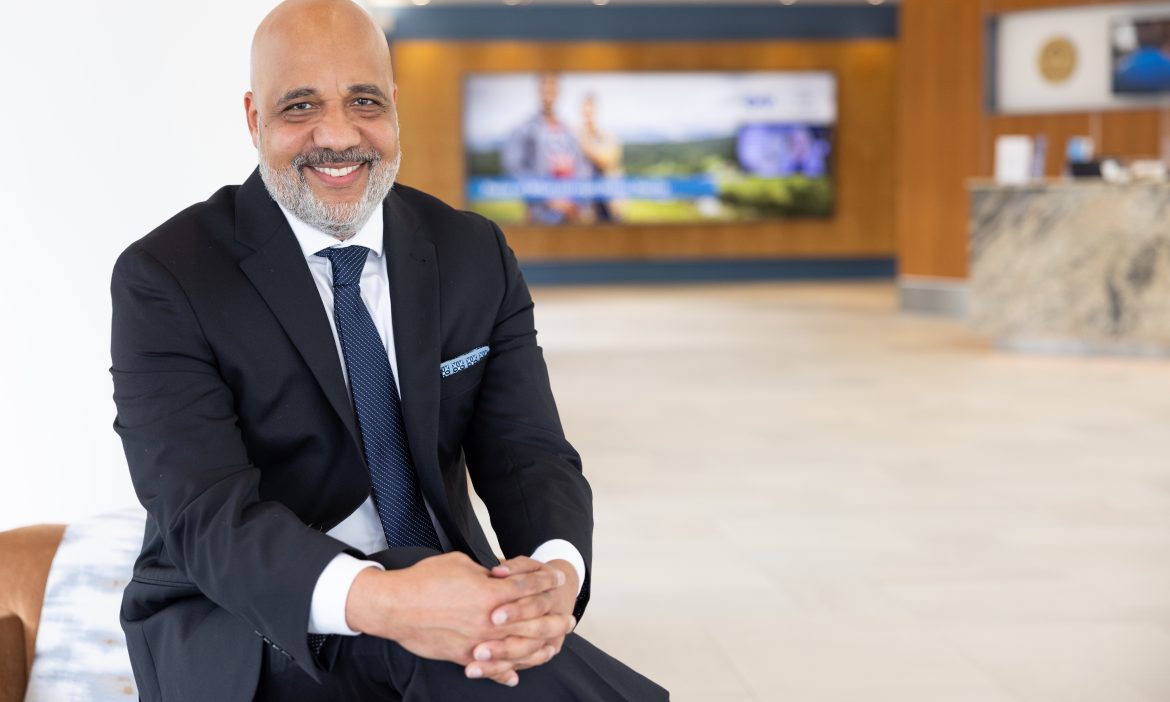“When I was in sixth grade, my family had some life challenges that you wouldn’t want anyone to go through,” Naveh Eldar recalls. “I’d always had this sense of strength; I felt like I was one of the smartest kids in the class, I was one of the best on the baseball team, etc. But at this moment, I felt absolutely helpless.”
That vulnerability — and subsequent overcoming of it — put Naveh on a path.
“I wanted whatever I did with the rest of my life to be impactful, to give others power that I wish I had in that moment,” says Naveh.
Today, as the director of intellectual and developmental disabilities (IDD) programs, Naveh provides expertise in how we support our members with an IDD diagnosis and helps Tennesseans become more empowered.
First steps
As a child, Naveh excelled thanks to parents who stressed the value and need for education. Growing up in Akron, Ohio, Naveh remembers that college was always a given. After graduating from Case Western Reserve University in Cleveland with a degree in psychology, Naveh moved to Nashville. His first job was working with troubled juveniles, a population typically held in low esteem — but one where Naveh saw value.
“I loved working with them,” he says. “We connected very well, as I provided strong boundaries for them while also letting them know they were cared about. I was able to strike that balance, which I think was different from what they were accustomed to.”
He transitioned to a mental health agency in Nashville, working with geriatric individuals with a severe and persistent mental illness (schizophrenia, bipolar disorder, etc.). Eventually he moved to programs supporting all age groups and was the first in Tennessee to establish an Individual Placement & Support Program, a research-based model of finding and keeping jobs for this population.
Naveh admits that even with a degree in psychology, he’d never considered working with this particular group — and had some reservations.

“It sounded interesting, but there’s an element of fear when you’ve never worked with a stigmatized population,” he says. “But when I was introduced to these people, I realized how fragile of a population it was. They’d been disowned by their families, and nobody believed they could do anything in life or make real decisions on their own. And again, I wanted to make an impact. I knew my passion was working with the disability community.”
A focus on integration
Throughout his career, Naveh’s commitment to empowering others has remained steadfast.
“Before I joined BlueCross, I was training agencies across the state, and I was being called before state legislative hearings to present on Capitol Hill,” he says.
“I was doing a lot that I felt was impactful. So I knew I couldn’t come somewhere where I’d be behind a desk reading reports all day for a paycheck.”
Fortunately, that wasn’t the case with ECF CHOICES, one of several programs Naveh oversees. When he joined BlueCare Tennessee, a BlueCross BlueShield of Tennessee subsidiary serving TennCare members, ECF CHOICES was the first model of its kind where a health insurer provides care coordination for people with intellectual and developmental disabilities. BlueCare worked closely with TennCare when developing the program.
“The world went from institutionalizing individuals with disabilities to moving them into communities, but really they spent all day in community programs and then went home,” Naveh says. “They’re not working towards independence or living on their own or anything like that.”
Traditionally, many people with intellectual and development disabilities have worked in jobs set aside specifically for them — jobs limited to the food service industry, cleaning and office tasks. ECF CHOICES helps these people acquire meaningful, competitive, integrated employment which fits their interests.
“Our goal is helping them live as independently as possible,” Naveh says. “Some people will always need support, but the golden line of the program is helping these members become fully part of their community.”

Naveh’s now at a decision-making level where his workday is frequently consumed by meetings. But oftentimes those meetings are about affecting change for one person, change that can then trickle down.
“It’s not uncommon for a BlueCross VP and five directors to call a special meeting just to talk about one member,” he says. “And those meetings are about, ‘How can we help this one member?’ We’re human beings who are doing this work because it means something to us. And in our work with TennCare, they expect us to always improve systems and come up with new ideals and how we can better serve our members and providers.”
Those improvements mean reducing handholding and helping set expectations for our members who want to succeed.
“A parent of a disabled child told me because of our program, this is the first time her daughter had any expectations,” Naveh says. “When her daughter was at school, they didn’t expect her to do classwork. When she’s at home, they didn’t expect her to do chores.”
“Our support coordinator asked her, ‘How would you like to get a job? We’ll help you find a job you can do.’ It was the first time any of them had any expectation of her living a full life — and it was a very emotional moment. Those kinds of stories are why I do this.”
Remaining true to himself
Though Naveh and his family have settled in Chattanooga, they retain dual citizenship in Israel, where Naveh met his wife.
“I like to spend time with my family, especially traveling,” he says. “I’m a foodie, so travel gives us the opportunity to find new restaurants. Sports are also huge for me, as growing up in northeastern Ohio, it’s mandatory that you’re a Browns fan, a Guardians fan and a Cavs fan.”

Naveh also hosts “The Landscape,” a podcast devoted to people, programs and businesses changing the landscape for individuals with any type of disability. He was inspired after seeing a lack of public conversation.
“Over my career, I had been very fortunate to become friends with and learn from individuals that were over national and international programs,” he says. “In my efforts to learn more from them, I looked for podcasts that interviewed them. I couldn’t find any. These people are literally changing the world for people with disabilities, and nobody’s talking to them. So I did so myself.”
That passion and proactiveness shows that Naveh has stayed true to the goal he set for himself at 11 — even if he didn’t know at that time he’d be working with the disability community, the most marginalized minority group in the U.S.
“I have a friend who often says, ‘All of us are slowly marching toward disability,’ meaning it’s going to happen to us if we’re fortunate enough to live that long,” Naveh says. “So if I can get the world to see the value and the potential of this population, which is immense, then they’ll see the potential in inclusion of every population.”


 Jesse joined the BlueCross BlueShield of Tennessee corporate communications team in 2017. A Chattanooga native, he has more than 15 years’ experience in content creation, management, and strategy for consumer audiences, including a six-year stint in health care marketing.
Jesse joined the BlueCross BlueShield of Tennessee corporate communications team in 2017. A Chattanooga native, he has more than 15 years’ experience in content creation, management, and strategy for consumer audiences, including a six-year stint in health care marketing.